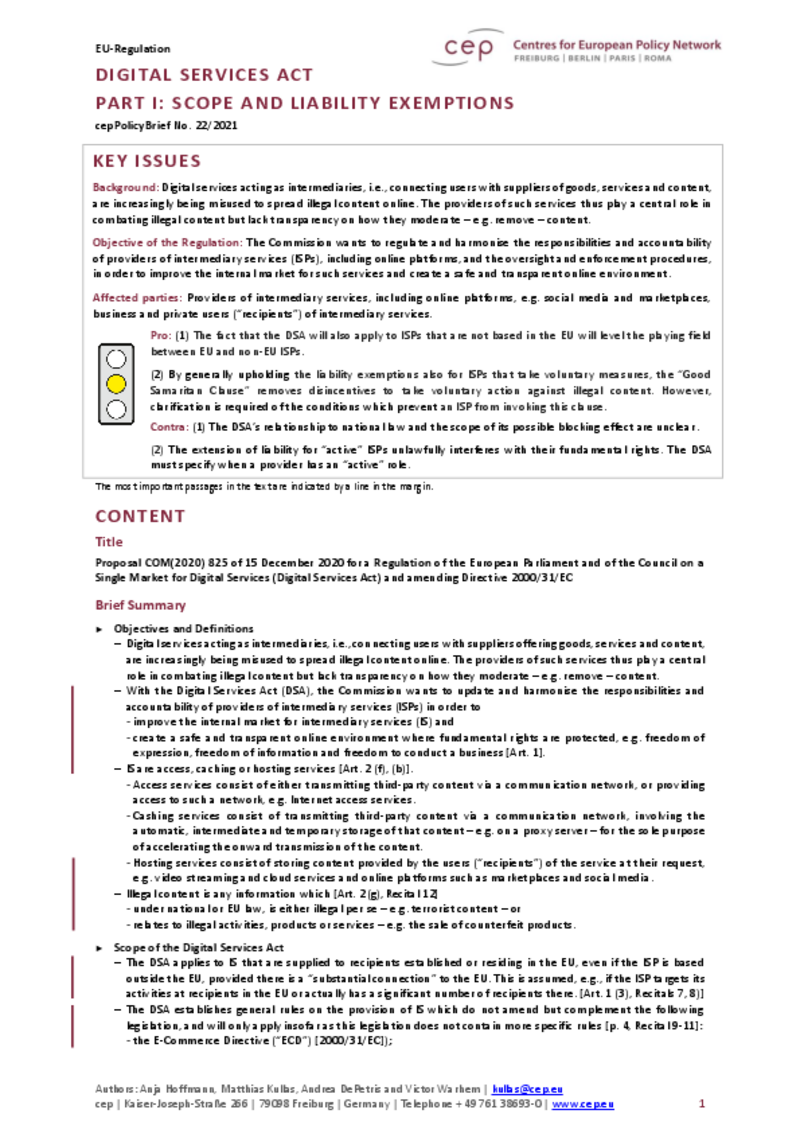
Digital Economy
Digital Service Act Parts I-III (cepPolicyBriefs COM2020 825)
cepPolicyBrief
The Centres for European Policy Network has examined the EU regulation in three cepPolicyBriefs and found legal violations and ambiguities. It is appropriate that the DSA creates a level playing field between EU and non-EU providers. "However, the law is disproportionate and therefore needs to be revised," says Anja Hoffmann. The cep lawyer wrote the PolicyBriefs with cep economists Matthias Kullas (Freiburg) and Victor Warhem (Paris) and cep lawyer Andrea De Petris (Rome).
According to Hoffmann, there is ambiguity about the DSA’s relationship to national law and the scope of its blocking effect. It also remains open which platforms are considered "very large" and should therefore be subject to stricter rules. The Commission proposes a threshold of 45 million "active" users but only wants to define later on what "active" means. "This is in breach of EU law. Such a fundamental question must be regulated by the European Parliament and Council," says Hoffmann.
The obligation of providers to block individuals who "frequently" post "manifestly" illegal content is also too vague, according to cep, and thus violates the freedom of expression and information.
The plan to entrust responsibility for enforcement of the DSA solely to the member state in which the provider is established facilitates the provision of cross-border services. However, the cep criticises that the DSA does not sufficiently consider possible enforcement problems. "The member states should be permitted to take measures to protect important legal interests where the member state of establishment fails to act," Hoffmann demands. At the same time, the enforcement procedures should be made more stringent. Moreover, the Commission should not only have to act in the case of infringements by very large platforms. "Without adequate protection against enforcement deficits, the competences of the member states are disproportionately encroached upon. And that would be unlawful," emphasises the cep lawyer.
Download PDF
| Digital Service Act Part I Scope and Liability Exemptions (cepPolicyBrief COM 2020 825) (publ. 10.12.2021) | 216 KB | Download | |
 | |||
| Digital Service Act Part II: Due Diligence Obligations (cepPolicyBrief COM 2020 825) (publ. 10.12.2021) | 237 KB | Download | |
| Digital Service Act Part III: Oversight and Enforcement (cepPolicyBrief Com2020 825) (publ. 10.12.2021) | 219 KB | Download | |





